Lubbock County Property Tax Protest
Rapid population growth across Texas has fueled a sharp rise in home demand, driving up property values in many parts of the state. That pressure is hitting Lubbock County especially hard, with tax assessments surging in the Tech Terrace, Coope, and Randsom Canyon neighborhoods. These rising appraisals mean many local property owners have to work harder to stay rooted in the places they call home.
Thankfully, protesting your property tax assessment gives you the power to challenge unfair valuations and potentially put money back in your wallet. That process starts with knowing your rights and having the right support by your side. At Texas Tax Protest, we help Texans navigate this system using data tools and personal insight. Whether you’re a long-time homeowner in South Lubbock or just settled into your first house near Monterey High, we’re here to help every step of the way.
Who Assesses Property Values in Lubbock County?
Lubbock County’s growth isn’t slowing down. New neighborhoods are filling out across the South Plains, and housing demand continues to rise near popular areas like Tech Terrace, Ransom Canyon, and Cooper. That momentum has led to steep increases in property tax assessments, leaving many homeowners questioning how their values were calculated in the first place.
The Lubbock Central Appraisal District (LCAD) is the authority responsible for assigning those values. Their job is to estimate your home’s market value using mass appraisal methods. While efficient, this system can overlook key property details, especially in neighborhoods with diverse housing stock.
How Mass Appraisal Works
Since the LCAD needs to process thousands of valuations at once, they use a method called mass appraisal. This approach relies on formulas and averages drawn from recent home sales, rather than evaluating each property individually. That means appraisers group properties by type and apply values based on shared characteristics. The downside? Features unique to your home, like its layout, lot size, or condition, might be overlooked, misinterpreted, or left out.
How Comparable Sales Factor In
The mass appraisal system uses recent sales of comparable homes (comps) to estimate market value. These comps are chosen based on location, size, condition, and other shared traits. Once selected, appraisers adjust their values mathematically to better align with your home’s details. For example, if a nearby home sold for $320,000 but has an upgraded kitchen worth $20,000 more than yours, a proper adjustment would bring that comp down to $300,000 when applied to your valuation.
Why Bad Comps Hurt Your Tax Bill
Some comps are too different to make fair comparisons. If your property was measured against homes with newer amenities or larger lots, the math could push your appraisal above market reality. In a fast-changing market like Lubbock, even a few thousand dollars in adjustments can make a difference. When values are inflated, so is your tax bill. That’s why property owners who question their comps often discover clear grounds for a protest.
How Do I Protest My Property Tax Evaluation In Lubbock County?
Living in Lubbock County means balancing the pride of homeownership with the pressure of rising property taxes. For many residents, that tax bill arrives each year with a familiar sense of dread. Here’s how to take that first step toward correcting your valuation.
Review Your Appraisal Notice
Start by reading your Notice of Appraised Value from the Lubbock Central Appraisal District (LCAD). This letter outlines your home’s current market value according to the district and sets the baseline for your annual property tax bill. Focus on any details that appear incorrect. Large jumps in value or inconsistencies with nearby properties could be early signs of overvaluation.
Collect and Adjust Comparable Property Data
The next step is building evidence. Begin by identifying comparable properties that have recently sold in your area. Use LCAD’s online tools, public sales data, or local real estate listings to find homes similar in size, location, and condition.
Once you’ve gathered a few comps, adjust the numbers to account for differences. For example, a comparable home that sold for $350,000 may include a garage and a pool that your home doesn’t have. If those features are worth $15,000 and $20,000, subtract $35,000 from the sale price to arrive at an adjusted value of $315,000. This figure gives you a stronger case to challenge your appraisal.
Submit Your Protest
Once your documentation is ready, file your protest through the LCAD portal, by mail, or in person. You’ll need to submit the correct form, explain your reason for protest, and include your supporting evidence. Keep in mind that the filing deadline is May 15 or 30 days after your appraisal notice is delivered, and missing this deadline could mean waiting another year to challenge the valuation.
Attend the Informal Hearing
After you submit your protest, you’ll receive notice of an informal hearing. This meeting is typically one-on-one with an LCAD appraiser and allows you to explain your argument directly. Bring all your materials: comps, adjustments, photos, and repair estimates if relevant. A clear, data-driven explanation will make it easier for the appraiser to understand your position and consider an adjustment.
Prepare for the Appraisal Review Board (ARB) Hearing
If the informal hearing doesn’t lead to a resolution, your case will move to the Appraisal Review Board. The ARB is a panel of local citizens who review property tax disputes. Come prepared to walk them through your valuation argument using the same evidence. Stay calm, speak clearly, and break down your comp adjustments. If your case is well-supported, the board may agree to reduce your assessed value.
Let Our Team Guide the Process
Filing a protest requires time, math, and persistence, but the savings can be worth the effort. Every correction begins with solid evidence and a clear explanation of why your home deserves a second look. At Texas Tax Protest, our team handles each part of the process for you. From researching comps to filing paperwork and presenting your case, we help Lubbock County homeowners fight against unfair assessments and protect their bottom line.
What Documents Do I Need for a Property Tax Protest in Lubbock County?
Many Lubbock County homeowners feel like they’re fighting an uphill battle when they see their appraisal. However, the right paperwork can tip the scales in your favor when tied to local data and clear evidence. Here are the documents that make your protest stronger:
- Notice of Appraised Value: This letter kicks off the protest. It outlines your home’s current value and gives you a benchmark to challenge.
- Comparable Sales Data: Comps show what similar homes have sold for nearby. If a similar property sold for $40,000 less than your assessed value, that discrepancy becomes key evidence, especially after you adjust for differences like lot size or upgrades.
- Photos of Property Condition: Images of roof wear, foundation cracks, or outdated fixtures help explain why your home may be worth less than the comps used in your appraisal.
- Repair Estimates or Contractor Quotes: Written bids or invoices for HVAC repairs, plumbing work, or structural fixes show real costs that could impact value.
- Previous Appraisals or Tax Statements: Historical records can flag sharp jumps in valuation and point to errors in LCAD’s current assessment.
- Exemption Proof: Forms for homestead, senior, or veteran exemptions help reduce taxable value when filed properly.
How Do Homestead Exemptions Affect My Property Taxes?
For many Lubbock County homeowners, property tax season brings financial strain that builds year after year. A higher appraisal can feel like a penalty for simply staying in your home, and when your budget’s already tight, every dollar matters. Here are some of the most useful exemptions:
- General Residence Homestead Exemption: Available to homeowners who live in their home as of January 1. Reduces taxable value by up to $40,000 for school district taxes. Apply through LCAD with a valid Texas ID showing your home’s address.
- Over-65 Exemption: Homeowners aged 65 or older can freeze school taxes and qualify for extra reductions. A driver’s license or birth certificate is required.
- Disability Exemption: For homeowners with a disability recognized by Social Security. Proof of eligibility is needed along with your homestead form.
- Veteran Exemption: Offers partial or full exemption based on your disability rating or service status. DD214 and VA documents are required.
- Agricultural (Ag) Exemption: Applies to land used for farming, ranching, or timber. Requires an application, land use history, and documentation of active agricultural production.
- Local-Option Exemptions: Some cities or school districts offer additional breaks on top of the state-level homestead exemption. Check with LCAD to see what’s available in your taxing unit.
What Are The Deadlines And Procedures For Filing A Tax Protest?
Here’s how the process works and when to take each step.
- Know Your Deadline: You must file your protest by May 15 or 30 days after the date on your Notice of Appraised Value. If you miss this deadline, your right to protest for the year is out the window until next year.
- Submit a Notice of Protest: File online through the LCAD, by mail, or in person. You’ll need to complete the Notice of Protest form and list your reason for objecting to the value.
- Receive Your Hearing Date: After you file, LCAD will send you the date, time, and location of your hearing. This gives you time to organize your documentation and evidence.
- Prepare Your Case with Math-Adjusted Comps: Focus on local comparable sales and apply basic math to adjust for differences. For example, if a nearby comp has a renovated kitchen worth $20,000 and your home doesn’t, subtract that from the comp’s value.
- Present Evidence at Your Hearing: Bring photos, property details, market data, or analysis from experts. Show how your valuation doesn’t reflect the condition or features of your home. A clear argument, backed by adjusted comps, is often what sways the Appraisal Review Board.
- Let Our Team Guide You: Filing, prepping, and presenting can feel like a lot to handle alone. Our team at Texas Tax Protest helps homeowners across Lubbock County build strong protest cases.
What Are Possible Outcomes in a Lubbock County Property Tax Protest?
Every protest brings a different result, and while not all cases end with a lower bill, presenting a strong argument gives you a better shot at fair treatment. Here’s what you might expect after your hearing with the ARB:
- Your Value Gets Reduced: This is the end goal. If the ARB agrees that your evidence shows a more accurate valuation, through adjusted comps, property condition details, or cost documentation, they may lower the taxable value of your home.
- Your Value Stays the Same: The board may decide that your submitted comps or adjustments didn’t justify a change. In these cases, the original appraisal stands. While it can be disappointing, it often signals where stronger documentation might be needed for future protests.
- Your Value Increases: Though rare, your protest could result in a higher assessment. This happens when the board uncovers overlooked features or upgrades that raise your property’s market value.
- You Can Still Act After the Decision: If the outcome feels off, you have the option to take further action, such as arbitration or litigation. These steps carry more cost and formality, but our team at Texas Tax Protest can walk you through what’s next and whether it’s worth pursuing.
Frequently Asked Questions About Lubbock County Property Tax Protest
What if I miss the protest filing deadline in Lubbock County?
Missing the filing deadline can feel alarming, but all hope is not lost. While you’ll generally need to wait until the next year to file a protest, there may be specific circumstances that allow for a late protest, such as clerical errors or evidence of unequal appraisal. It’s recommended to contact a property tax expert to explore your options.
What if I disagree with the ARB’s decision on my property tax protest?
If you find yourself unsatisfied with the Appraisal Review Board’s decision, you have the right to take further action. You can file a lawsuit in district court or opt for binding arbitration, depending on your preference and the specifics of the situation. Both avenues provide an opportunity to challenge and potentially adjust your property’s assessed value.
Can I protest my property’s value if I just bought it?
Absolutely! Purchasing a property doesn’t lock you into its assessed value. If you believe the current appraisal is off-mark, especially compared to similar recent sales, you can contest it. Property values can be subjective, and by providing substantial data on comparable sales, you can argue for a fairer assessment.
What is the difference between informal and formal hearings for tax protests?
Informal hearings allow you to discuss your assessment directly with an appraiser, often resulting in a quicker resolution if discrepancies can be immediately agreed upon. Formal hearings, on the other hand, involve presenting your case before an Appraisal Review Board, where both you and the appraisal district representative lay out evidence. Though more structured, formal hearings can also provide a thorough examination of the details if needed.
How long does the property tax protest process take in Lubbock County?
The timeline for a property tax protest can vary. On average, informal hearings may resolve in a matter of weeks, while formal hearings might extend the process to a few months. This timeline depends largely on the volume of protests filed and the scheduling availability of the Appraisal Review Board.
Is there a fee for filing a property tax protest in Lubbock County?
Filing a property tax protest itself is free. However, if you choose to escalate your disagreement beyond the ARB’s decision, such as opting for arbitration, there may be associated costs. Consulting with a tax professional can provide clarity on potential fees and strategic advice tailored to your situation.





